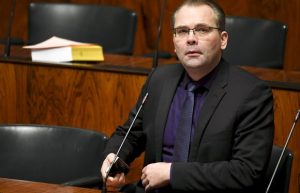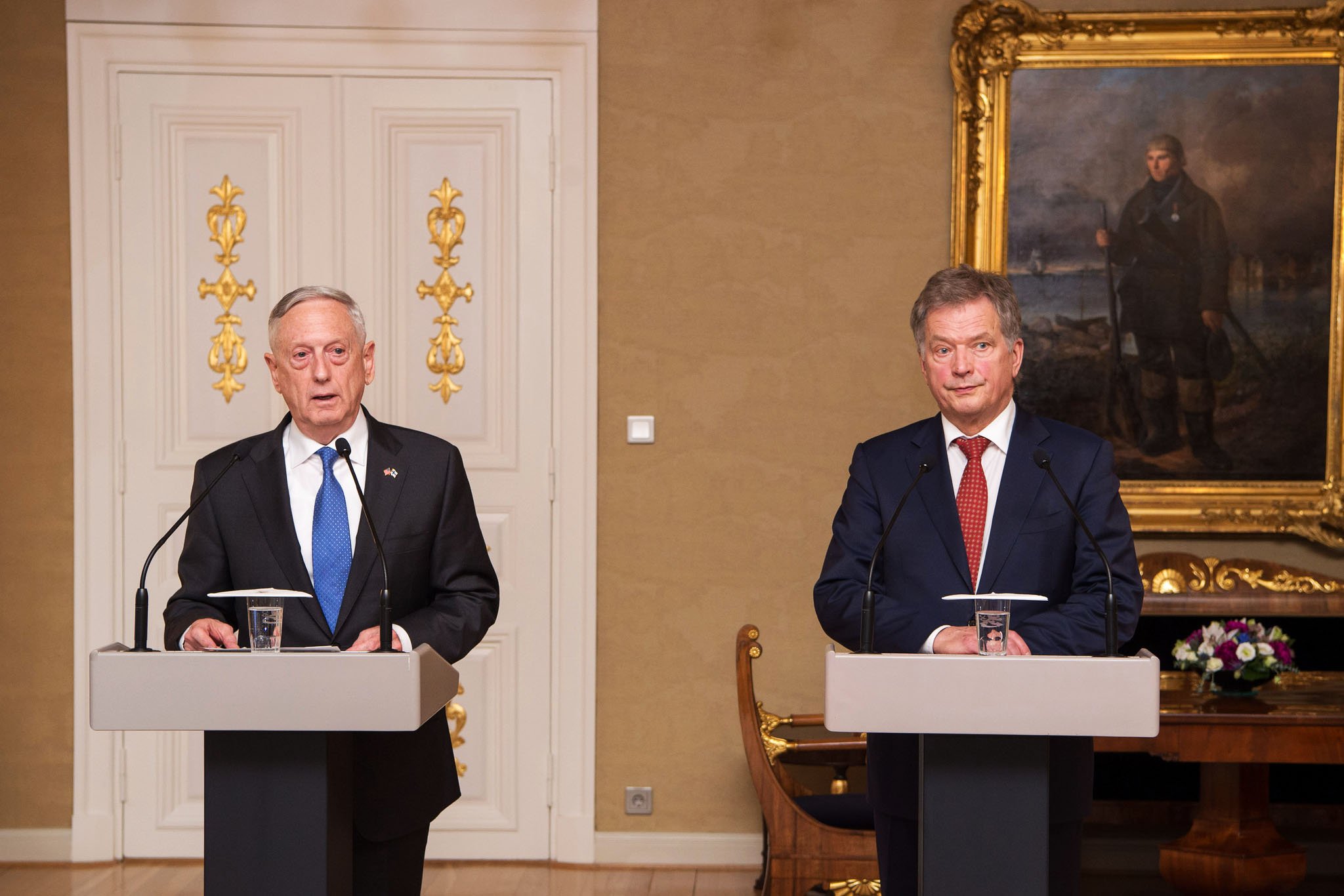2018-02-14 By Robbin Laird
Helsinki, Finland
During my visit to Helsinki during the week of February 11, 2018, I had the chance to sit down with Matti Pesu, a research fellow at the Finnish Institute of International Affairs.
https://www.fiia.fi/en/expert/matti-pesu
In a paper published late last year entitled “What non-alignment? Finland’s security and defence policy stems from partnerships,” he highlighted the focus of Finnish policy as follows:
Defence cooperation has become the most important driver of Finnish external affairs.
New initiatives are being launched, and ever-more extensive cooperation is binding Finland to the Western security system and its deliberations. At the same time, the waning of Finnish military non-alignment has further accelerated.
Finland has consistently removed the legal impediments that have restricted its room for manoeuvre in security and defence.
The paradigm of Finnish NATO cooperation has changed.
The centre of gravity of the partnership has shifted towards supporting Finnish national defence on the one hand and NATO’s collective defence on the other.
When it comes to the EU, Finland is much more willing to see the Union as a security and defence community.
The bilateral defence partnership web has also expanded, with the stated purpose of intensifying these partnerships being to improve the chances of receiving crisis-time political or military assistance.
It is telling that Finland and Sweden are currently rehearsing territorial defence together.
Finnish defence cooperation with the United States is ground-breaking.
Helsinki has moved closer to Washington both politically and militarily.
Conducting exercises with the military superpower sends a strong strategic signal. Both nations have a mutual interest in Europe in general and in the Baltic Sea region in particular.
With significant change in the Finnish strategic environment, with Putin military activism, the election of Donald Trump and the formation of a new US defense strategy, with turbulence in the European Union, with the coming of Brexit and enhanced regional collaboration among the Nordic states in defense and security cooperation, Finland is defining its course.
It is clear from discussions in Helsinki with the government that a national defense focus is becoming broadened toward perimeter and regional defense.
It is similar in some ways to how the Japanese are now thinking in terms of perimeter defense, rather than a narrow concept of national defense.
And in so doing, the Finns are continuing their strong national commitment to national defense but doing so in terms of working with key partners and allies both to contribute to and to benefit from partner relationships for defense and security in the Nordic region.
According to Pesu, “We never had a post-Cold War defense holiday.
“We continued to be focused on national defense while our European allies rebuilt their forces for out of area operations.
“We continued conscription, training a territorial Army, and focused on the continuing need and reality for a national defense structure.
“When the Crimean crisis came along, we did not have to do a 360 degree turn away from out of area forces to rebuilding national defense forces.
“We face a modernization challenge, but we have built a clear foundation for national defense.”

What is the advantage of conscription from the Finnish point of view?
Pesu: “As the current President of Finland puts it, we underscore the public will to serve and will to defend the nation.
“Finland is unique in Europe in terms of the very high level of public commitment to defend the national territory.
“The vast majority of the male population has been through the conscript process and understands the military and support it as a trusted organization.
“The commitment to defense is ingrained among the Finnish population.
“And in the Nordic region, conscription is returning elsewhere as well as the defense of the nation and the region becomes a priority.”
Question: Obviously, Russia is the threat and the challenge.
How have Finnish officials responded to the return of Russia to the military stage?
Pesu: Finland has a long border with Russia and Russia is a big and powerful country and we have a long common border and involvement in the Arctic.
“Generally, Finland has been accommodative and realistic with regard to Russia and its interests.
“But recent actions by Russia have led Finnish officials to be quite critical of Russian behavior and has led to enhanced activity to defend Finland and to build out regional responses and bilateral relations in the defense of Finland and the region.
“We have made a number of changes to our laws and regulations which enable us to expand working relationships with partners and allies.
“Last year, we changed the law so that Finland can both contribute to and benefit from both giving and receiving military assistance.
“Finland is now committed to working with partners on an expanded basis.
“We are enhancing bilateral relationships where key states want to and can contribute to defense of the region.
“For example, we are ramping up our cooperation with the UK and the UK has had historically a long relationship in the region.
“History has returned with new evolving UK perspectives post-Brexit.
“Sweden is the most important partner for Finland. We have complimentary military capabilities and shared interests.
“The United States is now the second most important partner of Finland.
“The US concern with the Baltics, the Russians and the Baltic Sea is a key point of convergence with Finland.
“The Finns have been realistic about the coming of Donald Trump to the White House and have not reacted as have some “moralistic” European states; and indeed, the Finnish President was welcomed at the White House last year and this was widely appreciated in Finland.
 How do you see the way ahead?
How do you see the way ahead?
Pesu: We are clearly shaping a regional approach with enhancements from key bilateral partners like Sweden, the US and the UK.
“And we are expanding both our role in and the perceived significance of regional exercises to shape better defense operational capabilities.
“And as we add new naval and air systems, they will build on this evolving structure shaped through exercises and concrete agreements.
“It is about creating real deterrent capabilities, not simply upon verbal or paper commitments.
“And we are focused on significant improvement in the readiness of forces to be able to respond quickly and effectively in a crisis, and we see crisis management as evolving significantly.
“We are not looking at long time spans; we need to be able to respond quickly and effectively when a crisis comes. Reworking crisis management of significant concern throughout the Nordic region, and Finland sees this as an important effort.”


